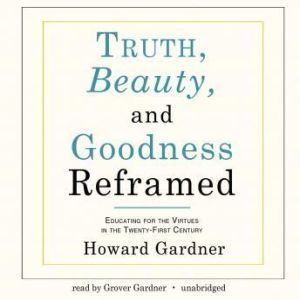Synopsis
The True, the Good, and the Beautiful are as timeless a trio of concepts as Western culture has to offer. Since before Socrates, humankind has explored these virtues in an attempt to describe and categorize them. Our definitions of these concepts, moreover, have unceasingly changed over the ages and across continents. Every known civilization has developed its own interpretations of them and so has confronted difficult questions: Is truthfulness inherent or inculcated? Is beauty achieved or a gift bestowed by the gods? Is goodness a birthright or determined by society?
In Truth, Beauty, and Goodness Reframed, Howard Gardner explores the meaning of these virtues in a contemporary world of vast technological change and relativistic understandings of human nature. Todays technologically saturated era poses profound challenges to once uncontroversial assertions of what is good. Our search for truth is besieged by a miasma of blogs, forums, and opensource references that obscure the origins of information, and tabloids, cable news, and talk radio that proffer the most convenient, popular, and profitable truths. Our understanding of beauty is bombarded by airbrushed advertisements and photoshopped portrayals of perfection. And the concept of the good is increasingly politicized and debated as we determine who is a terrorist and who is a freedom fighter, which liberties are inexorable and which are negotiable in the name of national security.
In this incisive and elucidating study, Gardner reveals that while the concepts of truth, beauty, and the good are changing faster than ever, they areand will remaincornerstones of our society. These virtues, though in flux and under attack, are essential to the human experience. While they may be obscured and exploited, we must continue to pursue truth, beauty, and goodness to evergreater heights. This insightful, illuminating analysis provides an approachable primer on the foundations of ethics and virtue in this modern age.


